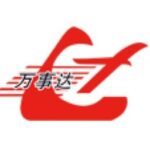The European steel industry is in deep crisis. According to estimates of the European Ferrous Recovery and Recycling Federation, the demand for steel products in the region is currently about 25% less than in 2007. And there is no hope that ever in the foreseeable future he will return to the previous level.
The construction sector no longer receives a substantial investment, neither from the state nor from the private sector. According to the company Stemcor, only in Spain and Italy excess capacity for the production of rebar exceed 2.5 million tonnes per year (in each country). The industry is experiencing a downturn due to the deterioration of access to credit and the narrowing of markets. It is obvious that the basis of the economic policies of most EU countries and 2013 will be the reduction of public spending and budget deficits that will hit the real sector.
At the same time, further reduction of excess capacity in the European steel industry is difficult, as it leads to the elimination of a large number of jobs. Thus, in France for several months, the government is trying to maintain the furnace at the Florange plant of Arcelor Mittal Corporation, which this spring halted their work due to lack of profitability. For its part, the management of Arcelor Mittal said that removing capacity from the system has occurred due to the recent closure of a major car company Peugeot Citroen near Paris.
In this context, a positive factor for the industry may be closing the smelting capacity at the Ilva steel plant the Italian company Riva. In early October, Riva at the request of the court shall proceed to the decommissioning of blast furnaces and coke oven batteries, which is in the city of Taranto, where the company is located, has experienced an exceptionally high level of environmental pollution. However, the leadership of the Italian company reports that the largest blast furnace at Ilva will remain in operation at least until mid-2015.
While the events happening around Ilva, practically does not affect local steel market. The position of Italian companies faltered in the second half of September due to the appearance in the region of cheap Chinese products. And towards the end of last month when the Euro stabilized at $1,29-1,30, Chinese suppliers added manufacturers from CIS, Turkey, India, some middle Eastern countries.
In early October the cost of the Chinese and Russian hot rolled in the South of Europe was around 440-450 euros per ton CFR, forcing the Italian metallurgists to reset prices to around 450-460 Euro per ton EXW. In General, imported hot rolled coils in Europe are quoted in the range of 440-480 Euro per MT CFR/DAP. Outside of Italy, the European companies offer these products at 480-510 euros per ton EXW, but according to traders, at the conclusion of actual transactions producers are willing to provide a discount of up to 40 euros per t
As observers note, the stocks of consumers and distributors is small, but neither one nor the other does not strive for new purchases, preferring to buy the material in small batches. As a rule, preference is given to European rental or imported products from Turkey and CIS. Transactions with Chinese suppliers are relatively sharply due to the long delivery time and low confidence in these partners, but buyers are willing to use quotes from Chinese companies as a benchmark.
In the European market of long products business also are not the best way. In Germany and the countries of Central Europe, where the construction industry is showing signs of life, domestic prices of rebar can reach 520-530 euros per ton CPT, but the market is under pressure due to the large number of suppliers. Even the Turkish companies offer their valves in Germany at prices less than EUR 500 / t CPT.
In southern Europe the construction industry is almost paralyzed, so most of the products of local factories are exported. At the same time, suppliers have to make more concessions in transactions with North African clients. Algerian company recently resumed its purchases of rebar in Spain and Italy, but demand lower prices to € 460-470 / t FOB.
In General, the market sentiment is pessimistic. Based on the current state of the regional economy, for the resumption of growth in prices for steel products in Europe in the foreseeable future there are no prerequisites.
Victor Tarnavsky
Rusmet.ru
